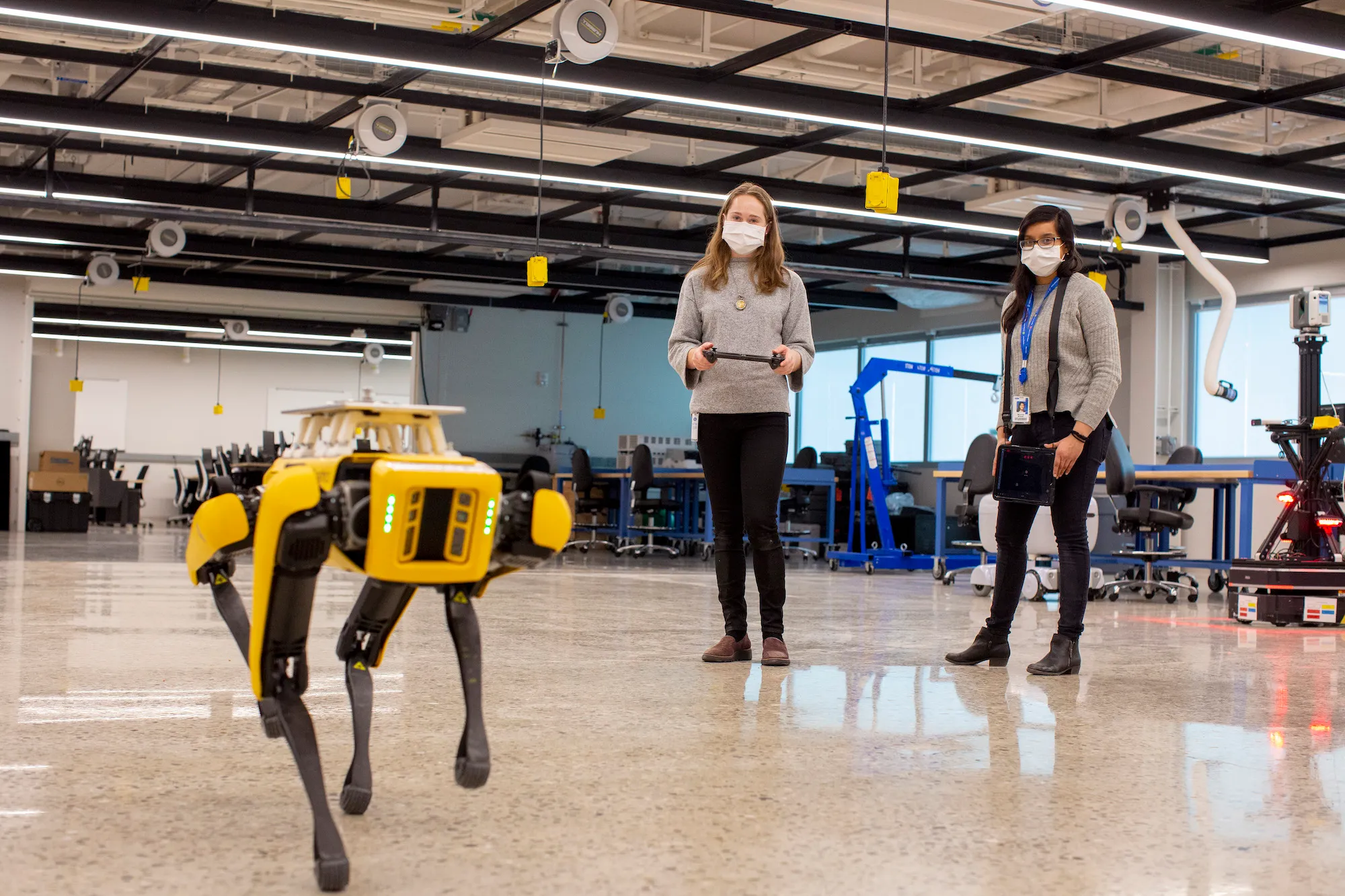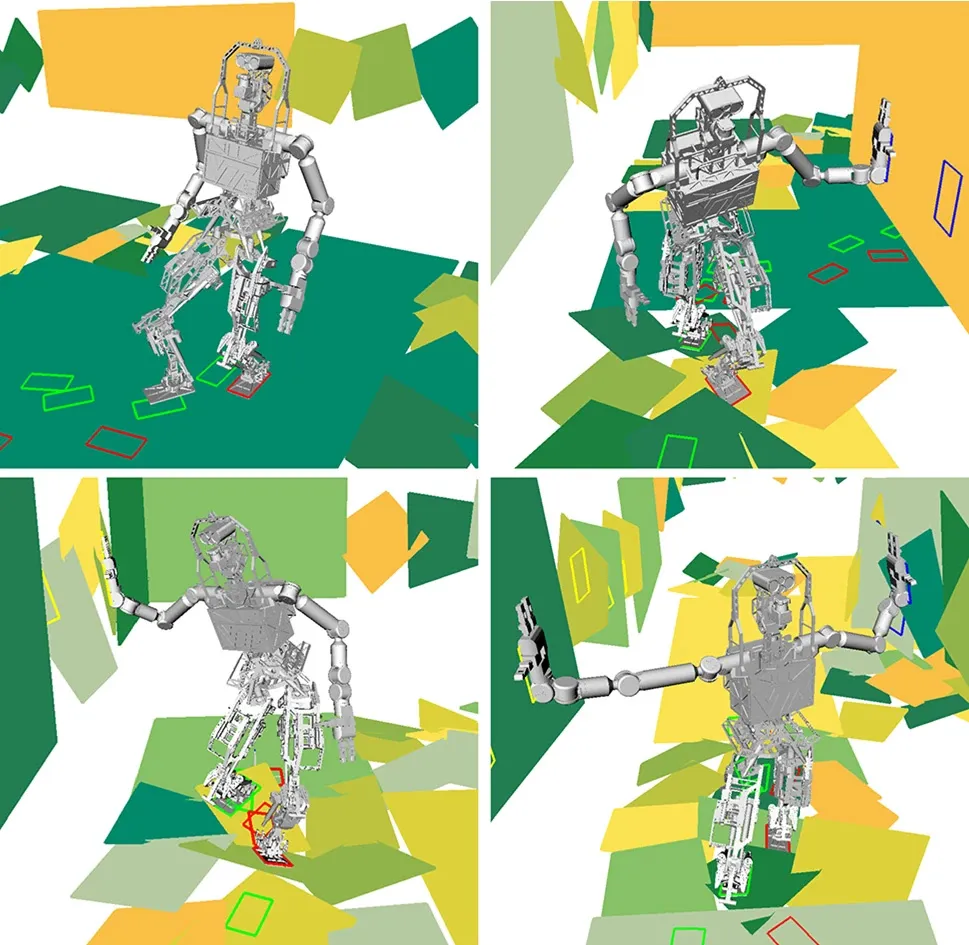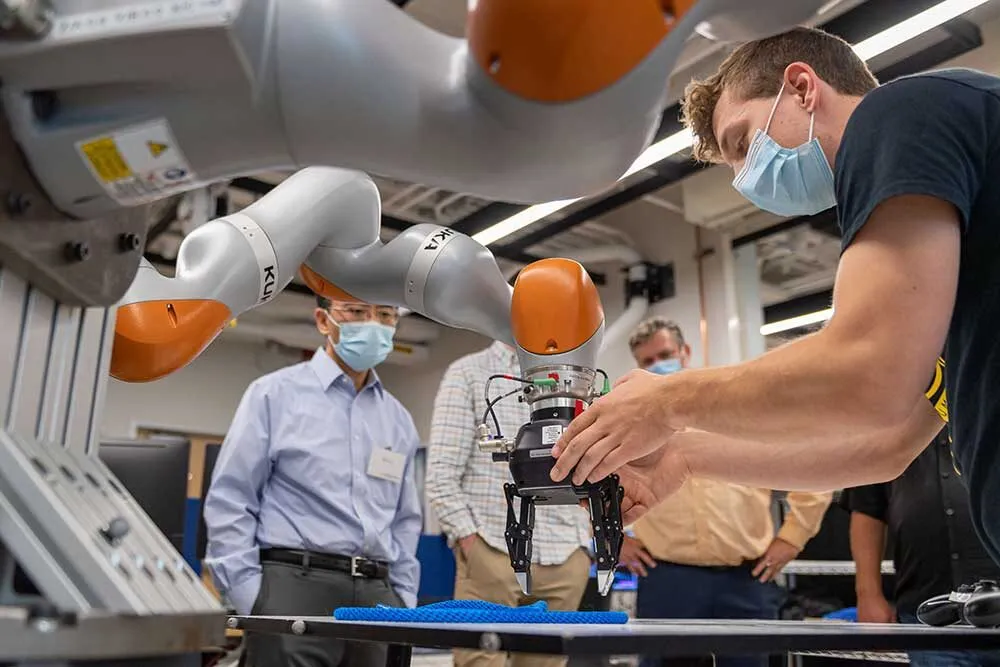Course Requirements MS PHD
The Robotics Masters (MS) degree program requires completion of 30 credits of letter-graded coursework including directed study for 3 to 6 credits.
The Robotics PhD program has very similar course requirements. PhD students may earn a master’s degree as part of their PhD program. This master’s degree may be conferred provided the student does not already have a master’s degree in Robotics. To complete the PhD coursework requirements, students will complete at least 6 credits beyond the 30 required for the master’s degree to satisfy specific course requirements. If entering with a relevant master’s degree, students must only complete ROB 501, ROB 550, ROB 590, and the depth, breadth, and cognate requirements, which is a minimum of 26 credits.
The Rackham Residency requirement states that at least 18 of the 36 course credits required for a PhD be earned at the University of Michigan, for those entering with master’s degrees from other institutions.
The robotics program classifies most of its courses as belonging to one of three core subdisciplines:
- Sensing - Includes computer vision, mapping, signal processing.
- Reasoning - Includes planning, multi-agent coordination, machine learning, artificial intelligence.
- Acting - Includes control, kinematics, dynamics, mechanical, bio-mechanical systems design, manipulation, real-time systems.
Course lists
- Current term courses
- Complete Robotics course listing, including reasoning, acting, human-robot interaction, and elective courses



Credit Requirements
The following table summarizes Robotics program course categories. The “Other Electives” course set is quite general and should be discussed with a student’s advisor. Some suggested math and robotics courses hosted in traditional departments are listed here. Any course listed under Sensing, Reasoning, or Acting that is not used to fulfill the breadth or depth requirement, 400-level courses listed here, or any 500-level or higher courses within the College of Engineering, can be considered an elective. If you would like to request that a course not included in one of these groups count as an elective, please fill out the Robotics Course Approval Request form.
| Course / Category | Description |
|---|---|
| ROB 501 | Math for Robotics |
| ROB 550 | Robotic Systems Laboratory |
| Breadth | One course from each core area: sensing, reasoning, acting |
| Depth | At least one additional course taken from at least one of the three core areas |
| Cognate (PhD only) | One technical course from outside your Depth core area. Note that the cognate CANNOT double-count for a Breadth course. |
| Directed Study | Research supervised by a robotics faculty member. See ROB 590: Directed Study |
| Other Electives | 400 level or higher (approved by a faculty advisor) |
1st Year Students MS PHD
All first-year MS and PhD robotics students are advised to take 2 or 3 courses in the first (Fall) semester
-
These courses should include: Math for Robotics (ROB 501) and either Programming for Robotics (ROB 502) or Robotic Systems Laboratory (ROB 550).
- The academic topics in ROB 501 and ROB 550 provide a critical foundation for the Robotics curriculum, and students are expected to complete these courses within their first two semesters, if they are offered. If either ROB 501 or ROB 550 is not available in the second semester but is offered in the third semester, students must enroll in the course during their third semester. Failure to do so means that, while future enrollment in ROB 501 and/or ROB 550 will be guaranteed, it may not occur in the desired semester, which could result in a delay in graduation.
-
If decided upon, the third course would be related to the student’s primary area of interest.
-
In the second term, students are again advised to take 2 or 3 courses. These courses can come from the depth or breadth requirement areas, or 2 courses plus a directed study course (ROB 590.)
Grade requirements
Master’s Grade Requirements MS
Course grades must be B- or better for the credit hours to be counted toward any MS degree requirement. A student must have a minimum cumulative Rackham GPA of 3.0 (B) to be granted a degree.
PhD Grade Requirements PHD
A student must maintain a cumulative 3.5 GPA (on a 4.0 scale, A=4.0) and must make a grade of B+ or higher in all courses counted toward the Robotics PhD degree.
ROB 590: Directed Study and ROB 690: Master’s Advanced Research
Find more information on ROB 590 and ROB 690, including steps and the proposal form.
Dissertation Proposal Exam and Defense PHD
PhD students must propose, write, and defend a thesis on an original research topic. At least a year prior to the final thesis defense, the student must defend a proposal to the PhD committee. More information can be found here.